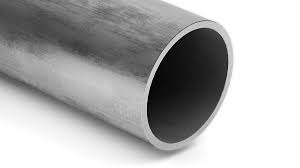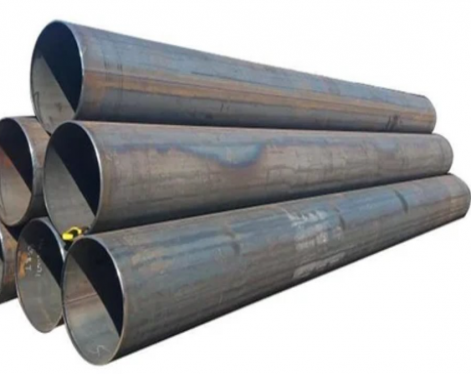1. Definition and importance of pressure bearing capacity of welded pipes
The pressure bearing capacity of welded pipe(like ERW steel pipe and SSAW steel pipe) refers to the maximum pressure that welded steel pipe can withstand under the action of internal or external pressure. Since welded pipes are widely used in petroleum, chemical, natural gas and other industries and have important safety and stability requirements, their pressure-bearing capacity has become an important indicator for uating their quality and safety performance.
2. How much pressure can a welded pipe hold?
The pressure of ordinary welded steel pipes needs to be lower than 1.6Mpa, and the temperature of steam pipelines, condensate water and hot water pipelines must be lower than 200 degrees Celsius. The pressure of normal seamless steel pipes needs to exceed 1.0Mpa, the temperature needs to be steam pipes exceeding 200 degrees Celsius, or hot water pipes with pressures exceeding 1.6Mpa and temperatures below 180 degrees Celsius.
3. Factors affecting the pressure-bearing capacity of welded pipes
(1) Steel pipe material: The material of the welded pipe directly affects its pressure-bearing capacity. In general, materials with high strength, high wear resistance, and high corrosion resistance can improve the pressure-bearing capacity of welded pipes.
(2) Welding quality: Welding quality is one of the key factors that determine the pressure-bearing capacity of welded pipes. Welded pipes with good welding quality have relatively higher pressure-bearing capacity.
(3) Wall thickness: The wall thickness of the steel pipe also affects the pressure-bearing capacity of the welded pipe. Generally speaking, steel pipes with larger wall thickness have relatively stronger pressure-bearing capacity.
(4) Steel pipe diameter: The diameter of the steel pipe will also affect its pressure-bearing capacity. The pressure-bearing capacity of welded pipes with smaller diameters is lower than that of steel pipes with larger diameters.

4. How to improve the pressure-bearing capacity of welded pipes
(1) Select appropriate steel pipe materials: Where high pressure-bearing capacity is required, steel pipe materials with high strength, high wear resistance, and high corrosion resistance should be selected.
(2) Choose steel pipes with larger wall thickness: Steel pipes with larger wall thickness have relatively stronger pressure-bearing capacity, so the pressure-bearing capacity of the steel pipe can be increased by selecting an appropriate wall thickness.
(3) Improve welding quality: Welded pipes with good welding quality have relatively higher pressure-bearing capacity. Therefore, the quality of the weld should be ensured as much as possible and the defects of the weld should be reduced.
The pressure-bearing capacity of welded pipes is an important indicator of its quality and safety performance. Factors that affect the pressure-bearing capacity of welded pipes include the material, wall thickness, diameter, welding quality, etc. of the steel pipe. Improving the pressure-bearing capacity of welded pipes can be achieved by selecting appropriate steel pipe materials, selecting steel pipes with larger wall thicknesses, and improving welding quality.
Previous:ERW octg casing









